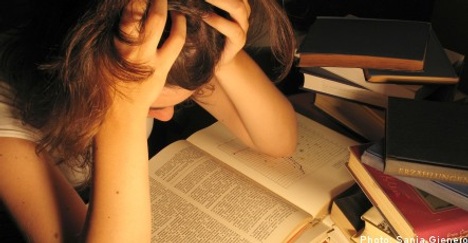The last time the Trends in International Mathematics and Science Study (TIMSS) was carried out in 1995, Sweden was among the countries which produced the highest results in physics.
Today, Sweden is in second to last place when it comes to student’s knowledge of maths, while landing in fifth place among the ten countries included in the TIMSS study.
According to the Swedish National Agency for Education (Skolverket), however, there are difference between the participating countries when it comes to which students are allowed to take part in the study.
Russia, for example, selects participants from among the country’s top students, while Sweden chooses from a broader sample of students.
Sweden dropped the farthest in both maths and physics among the four countries which participated in the TIMSS in both the 1995 and 2008.
The percentage of Swedish students who failed to reach an average level of knowledge in maths has nearly doubled from 36 to 71 percent, according to Skolverket.
At the same time, the percentage of students who received the highest marks has dropped from 6 percent to 1 percent.
The share of physics students who performed below average has increased from 8 percent to 38 percent, while the percentage who reached the top scores fell from 25 percent to 7 percent.
“It’s very disquieting that we’ve dropped so far during this period,” said education agency head Per Thullberg in a statement.
Grades received by Swedish students in maths and physics haven’t shown a marked decline during the same period, however.
“Grades, with more students getting the highest marks, don’t correspond to students’ level of knowledge in maths and physics as shown by the TIMMSS, but rather show the opposite trend,” said Thullberg.
The education agency offers several possible explanations for the weaker results, with one being that students have much weaker prior knowledge of the subject when they leave grade school.
As a result, high school teachers must spend a large proportion of class time reviewing basic concepts.
Sweden also offers less class time in both maths and physics compared to the other countries in the study.
In addition, a large portion of class time is devoted to independent work.
Other possible explanations may lie in changes to Sweden’s curriculum. Previously, students took comprehensive classes in maths and physics, where previously taught concepts were constantly reviewed.
The TIMSS Advanced 2008 is an international comparative study which examines students’ knowledge in maths and physics in their final year of high school.



 Please whitelist us to continue reading.
Please whitelist us to continue reading.
Member comments